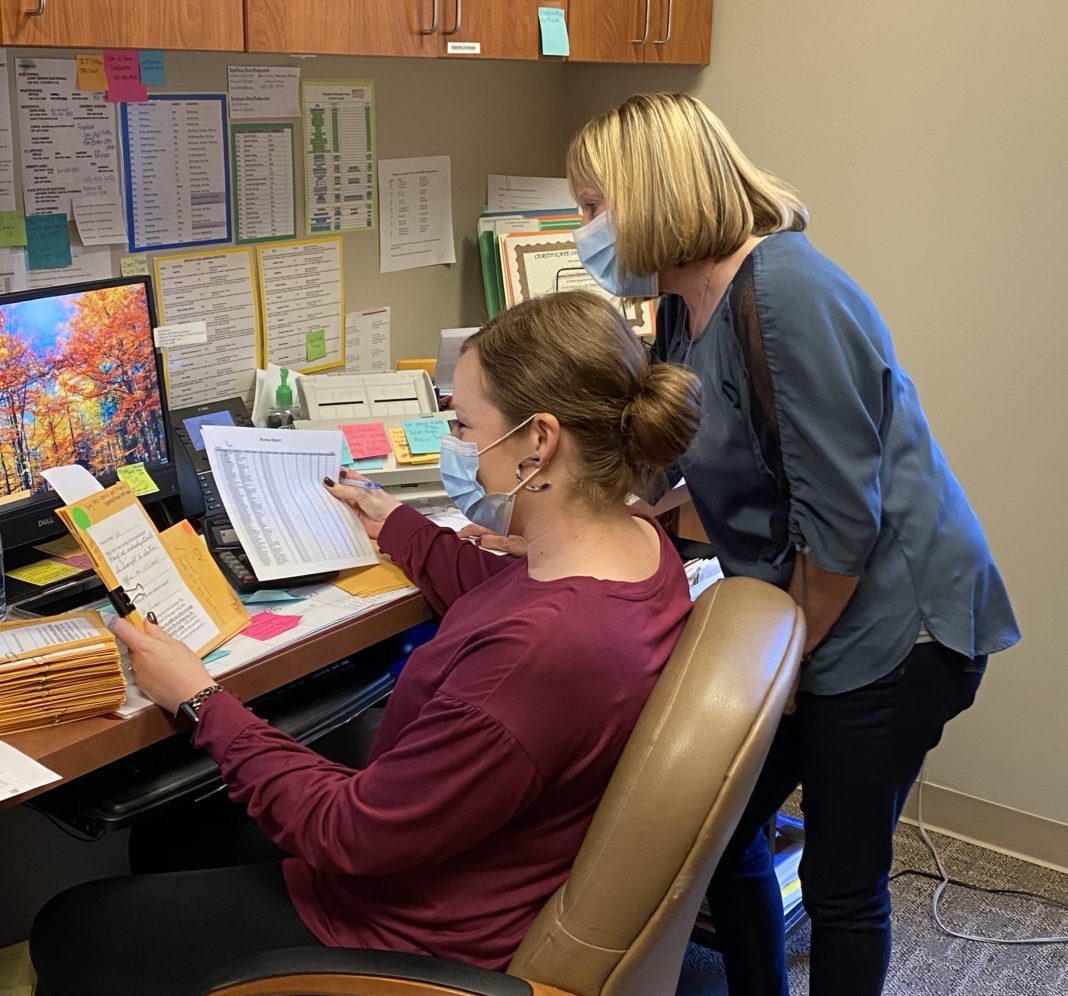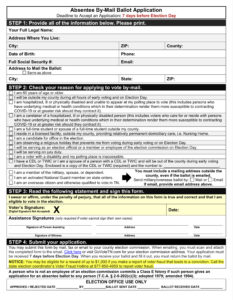
By Michelle Price
Special to the UCBJ
COOKEVILLE – While other states are still counting votes in last week’s elections, Putnam County and the state of Tennessee easily turned over their results Tuesday evening, just hours after the polls closed.
“It’s a real testament to our county election officials in Tennessee and our secretary of state and the state election officials, that we have a system that gives us a trusted verifiable outcome early on election night,” said U.S. Rep. John Rose (TN-6). “If we can do it in Tennessee, there’s no reason that it can’t be done in every state in the union.”
Many of the problems with the national election and the resulting challenges focus on two main issues: current active voter registrations and mail-in ballots.
“I’m shocked at the things I hear on TV about some of the stuff,” said Michele Honeycutt, Putnam County Election Commission administrator. “I don’t get it, because it’s (keeping the voter rolls current) pretty easy to do. If everyone follows the same guidelines.”
With over 48,000 registered voters, the Putnam County Election Commission keeps the rolls up to date ensuring that questions of illegal votes have no merit here.
The process of registering to vote is very simple. Potential voters can go to the Election Commission office to register, complete an application online at govotetn.com or simply check a box when applying for or renewing a Tennessee driver’s license.
Tennessee has procedures in place to verify registrations to prevent fraudulent applications.
“When people register, a voter registration card is mailed to the address they said they live at,” explained Honeycutt. “The card is not forwardable, so if the person doesn’t live there, it is returned to the election commission as undeliverable, and they become inactive. If they remain inactive through two federal elections, they are purged (from the rolls).”
There are several ways that people get purged from the voter rolls, but the most common reasons are death, moving out of the district or voter inactivity.
It is often rumored that in certain cities people vote for decades after their death. That does not happen in Putnam County, according to Honeycutt.
“Every month we get the death records from the state of Tennessee,” explained Honeycutt. “Periodically, we can get them from other states, but the other states aren’t that good about sending us that. And we purge those – we’re always purging people. If we see it in the paper – the obituaries – or we’ll look the funeral homes up online, then we look them up in the voter rolls and see if the birthdate matches.”
Moving, especially if within the state, triggers removal also. Anytime someone that is registered in Putnam County moves, for example to Wilson County and registers there, Putnam County is notified the next day and they delete the voter’s record.
“This does cause an issue sometimes, because people don’t realize when they move to another county, when they go get their license, they are signing something saying they want to register there, and that they are being registered,” explained Honeycutt. “Even though they will tell us there’s no way they registered, we have got documentation on it that they did. We’ve got the address and everything.”
In 2021 the election commission will run their list maintenance program. This program identifies anyone that the office has had no contact with voting or otherwise. At that point, a mailing will be sent to their address that is not forwardable.
“If it is returned to us as undeliverable through the US Postal Service, they become inactive and that starts the cycle,” said Honeycutt. “If we don’t hear from them for two federal elections, then they are purged. Typically, that is eight years.”

Another way that Tennessee keeps more control over the voting process is the procedure for mail-in, or absentee, voting. Tennessee does not mail ballots out without a voter requesting in writing an absentee ballot. Eligibility information for absentee voting can be found here. Only those medically unable to vote in person with a signed statement from their physician are eligible for permanent absentee status.
All absentee ballots must be received by mail (USPS, FedEx, UPS, etc.) by the close of polls on election day to be counted as a valid vote.
“Voter turnout for the Nov. 3 election was 70.31%,” said Honeycutt. “We normally run high, a lot higher than other counties in Tennessee, and four years ago we were at 64.79% which was very high, and this is higher than then.”
Honeycutt said she remembers it wasn’t too long ago that we had only 42,000 voters, and now we have over 48,000 registered. That is a net increase of over 6,000 in just a few years.
“Anytime we have a lot of new (voters), we’re also going to have a lot of deletes because other counties are getting a lot of new too, and we’re deleting those people, Honeycutt said. “It’s just a cycle.”








